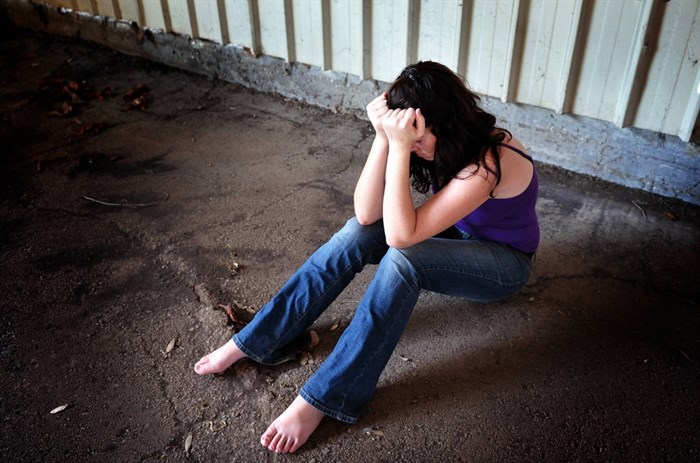Domestic violence reports surge as COVID-19 stay-at-home directive drags on
A drop in the number of domestic assault complaints during the first few weeks of COVID-19 stay-at-home orders didn't mean conditions for Kelowna women had improved.
It was just a pandemic-related pause on reporting and numbers have risen again in recent days.
"Now, the phone’s just ringing all the time,” executive director Michelle Novakowski of the Central Okanagan Elizabeth Fry Society said.
She expects about 50 new files to be started for April, which is the normal caseload for the entire month.
“(When this started) we were in a bit of shock,” Novakowski said.
“We didn’t think it would last very long, that this would be over soon and people were kind of watching to see what would happen. Suddenly it became real and they’re realizing this could go on for a long time and people started reaching out for help.”
Having people isolated at home is ideal for an abuser.
“A really common theme in spousal abuse is isolating a woman, turning her friends off so they don’t want to be around him, moving her away from her family,” Novakowski said.
“This just buys into all that. She’s isolated even more if she can’t visit the neighbours or things like that.”
She knows of a couple of victims whose spouses smashed or cut off their phones so is now working with Telus and others to try to get phones to some of the women who are at risk.
While some go into the E Fry office accompanied by friends or family, a good number of the more serious abuse complaints come from women who manage to call 911 for help.
And it’s not just abused women who may not be getting the help they need. Abused children—many of whom are identified while at school – are not being recognized as suffering because they too are stuck at home.
"We’re kind of wondering what it’s going to be like after this,” Novakowski said. “Is our casework going to explode when everything gets back to normal?”
With social isolation rules on the brink of being relaxed, there’s the chance that women will get the support they need in dealing with their abuse once they can get out of the house.
“They’ll be talking to other people who’ll say ‘you went through that? That’s not OK,’” Novakowski said.
“That’s what survivors need to hear because they take on a lot of the blame and shame themselves. Sometimes it just takes one person saying ‘that’s abusive, that’s not OK, you don’t deserve that.’ That can make all the difference.”
Despite provincial health officer Dr. Bonnie Henry exhorting people every day to be calm, kind and safe, that doesn’t mean spousal assault is about to go away.
“Maybe some will realize how fragile life is and change their ways,” Novakowski said.
“I would love to see us be out of work. I don’t see that in the near future. I think there will be repercussions after — maybe survivors reaching out for help once they’re free.”
The Elizabeth Fry Society takes on 500 to 600 new cases each year and has roughly 2,400 open files.
She took some comfort in Canada's assault weapons ban, however. She said while it might not save women from domestic violence, a correlation between domestic violence and wider gun violence suggests more light should be shed on domestic violence to identify the men capable of committing mass killings.
“The majority of domestic violence homicides are guns, knives – they’re not assault weapons. They’re more long guns, hunting rifles, that kind of thing. But we’re very happy about (the ban on assault rifles)," Novakowski said.
Prime Minister Justin Trudeau banned approximately 1,500 types of military grade guns last Friday, partly in response to the mass shootings in Nova Scotia last month.
“We do know that all mass shooters – I think it’s almost 100 per cent – when they start doing their background checks, there’s a history of domestic violence as well,” she said. “They’re seeing a direct correlation. I think it’s about that tendency for violence in every part of their lives. It shouldn’t be that surprising. But it does call for taking domestic violence very seriously, particularly if there’s weapons involved."
While assault rifles are rarely used in domestic violence, they can still be used as a threat, she said.
For more information on the society, click here.
To contact a reporter for this story, email Rob Munro or call 250-808-0143 or email the editor. You can also submit photos, videos or news tips to the newsroom and be entered to win a monthly prize draw.
We welcome your comments and opinions on our stories but play nice. We won't censor or delete comments unless they contain off-topic statements or links, unnecessary vulgarity, false facts, spam or obviously fake profiles. If you have any concerns about what you see in comments, email the editor in the link above.




